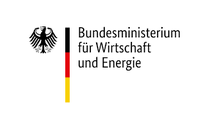LeanBI4ProdLog
An adaptive-iterative business intelligence system for fault diagnosis and prognosis in production and logistics processes based on lean data acquisition and voice assistance
The aim of the research project is to develop a business intelligence system with self-learning artificial intelligence for the description, diagnose and prognosis of malfunctions in production and logistics processes in small and medium-sized enterprises (SMEs). In this context, the data acquisition and analysis is to be designed "LEAN", using a voice assistance system.
What is at stake? - Small and medium-sized enterprises (SMEs) often face a non-satisfactory data acquisition strategy in production. Either a detailed data acquisition with a high acquisition resolution causes a lot of effort and corresponding costs or a coarse-aggregated, incomplete acquisition often leads to the non-recognition of target-actual deviations, such as malfunctions or improvement potentials. A solution to this conflict lies in a demand-oriented adaptation of the feedback resolution. In the research project, an adaptive-iterative business intelligence system (BIS) for fault diagnosis and prognosis is therefore developed which detects and analyzes problem areas through targeted data recording in production. At the same time, waste due to too much feedback (too high a resolution) is avoided (lean principle). The BIS should intelligently perform a target/actual comparison and dynamically determine the degree of resolution of the data recording in order to systematically uncover problem areas. Using voice assistance as the recording medium, feedback is provided with little effort and in parallel to the main activity in the simplest form of communication - natural language. In the long term, machine learning methods enable the BIS to predict deviations at an early stage and thus ensure a trouble-free production process.
What is the goal? - The goal is to make data acquisition more efficient by using a method suitable for SMEs. In concrete terms, this means that, in the long term, data quality, process knowledge and, above all, process reliability will be increased and, at the same time, the underlying acquisition effort will be reduced.
Advantages for companies?
- Data acquisition in production using low-cost, low-effort and easy-to-implement technology (especially voice assistance).
- Establishment of a flexible database for any production data and for highly varying products and orders.
- First steps with business intelligence and artificial intelligence.
- Systematic disruption analysis and prediction of probable disruptions to support delivery date determination, process reliability assessment, and variant and similarity planning.
 © BMWi
© BMWi
 © AIF
© AIF
 © BVL
© BVL
Company Partners:
Deutsche Werkstätten Hellerau GmbH
FabFlow GmbH,
Hiconform Freitaler Modellwerkstätten eG
Linovag Ladenbau GmbH
Project Duration: January 2020 - April 2022


